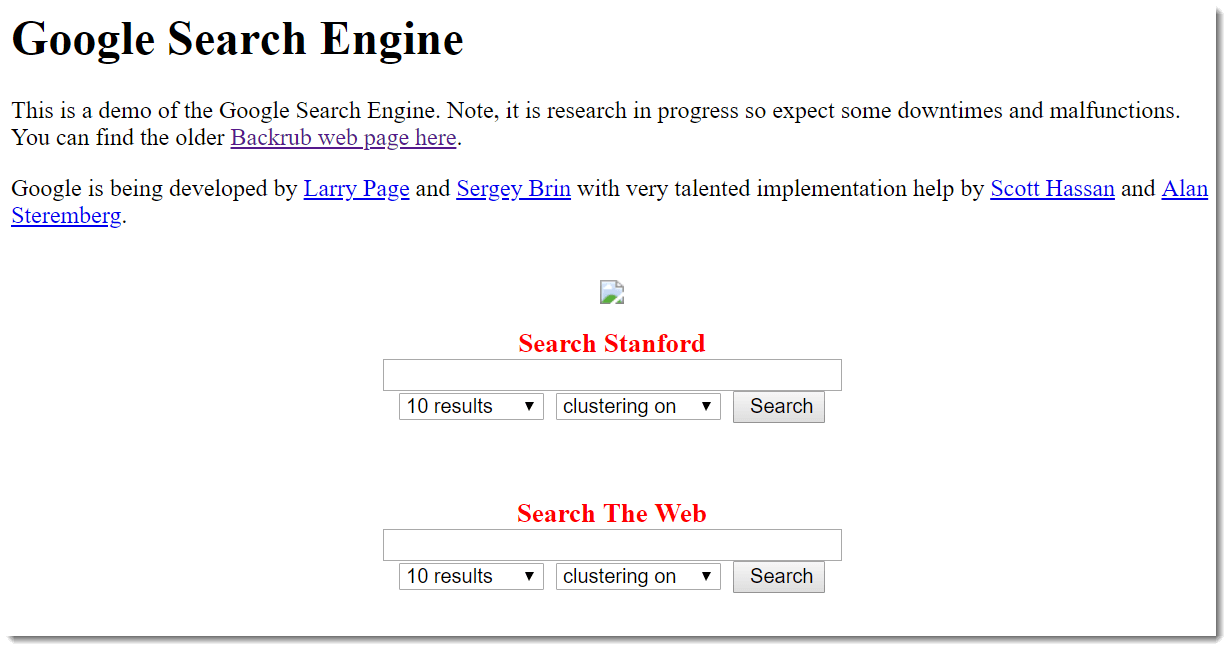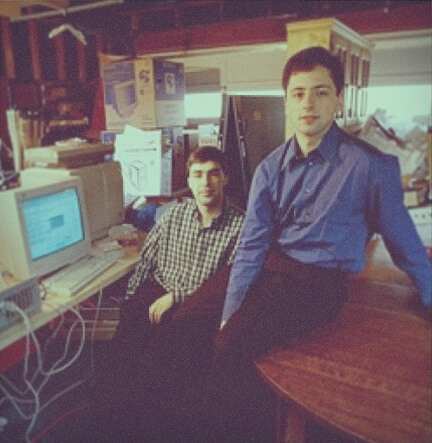On Google’s 21st birthday, a look back in time
Revisit a 1999 interview with Google co-founder Larry Page by Search Engine Land's Chris Sherman.
Google’s exact “birthday” remains a mystery, but the official line is that September 27, 1998 was the day the startup launched. Today marks the 21st anniversary of the company that has grown into one of the world’s largest companies, now considered by most to be a tech titan.
Not long after the company started, I had the chance to chat with Google co-founder and CEO Larry Page about how his fledgling search engine was different from the powerhouse competitors of the day, such as Infoseek, AltaVista, Lycos and others. Here’s the article I published offering a glimpse at this audacious startup, including tips for getting the most out of what today would be considered primitive search engine.

Do you Google?
Originally published on June 29, 1999 on About.com.
As search engines go, Google (to borrow a phrase) thinks different. And Google’s co-founder and CEO, Larry Page, thinks big.
Take Google’s name. A “googol” is a huge number: 10 to the power of 100-more than the number of atoms in the universe. Google aims to index the huge number of documents that make up the vast universe of the Web-but differently. Google aims to understand what it finds. And: “We liked the spelling ‘Google’ better,” says the company info page. “It sounds cool and has only six letters.”
Unlike the other major search services, Google is a “pure” search engine. No news, email, chat, stock quotes, or other trappings offered by the major portals. And Page says that Google intends to keep it that way, focusing the company’s energies strictly on search.
Google also takes a unique approach to determining what results you see for search queries. “Google measures link importance” to determine relevance, says Page. A page is important if other pages with high importance link to it, and especially if lots of pages with high importance point to it.
This may sound circular, and it is, but it also makes sense. A link to a Web page is the online equivalent of a citation in a book. Web page authors generally only link to pages they think are important. “It’s almost like a peer review process for the Web,” says Page.
The beauty of this approach is that it’s virtually impossible for spamdexers to scam the search engine with bogus techniques. It’s also highly scalable, meaning Google will actually get better over time. As the Web grows, more links are created and Google can be more certain about the importance of documents. That’s good news, because the Web is doubling in size every nine months, according to Page.
Google’s other unique features

Google has a number of other neat features, such as the “I’m feeling lucky” button. Clicking this button skips search results altogether and takes you directly to the page Google thinks is the best match for your search. And it works so well it’s almost scary.
Google’s results page includes the page title, the URL, and an “importance” score (called a PageRank). The PageRank takes the form of a red bar graph, and it’s also a link. Clicking it shows you all of the important pages that have links pointing to the page.
In essence, clicking the PageRank bar lets you do an “Oh, Yeah?” test on the results, to see what sources Google used to compute the importance of the document. No other search engine provides this kind of transparency to show you how relevance is calculated.
The description of each document in the results list is also customized to your search terms. “Words in the description will match what’s found in the document,” says Page. The description is an excerpt of the text that matches your query, with your search terms in bold. “We can do this because we have the documents stored in cache” on Google’s computers.
“On every query, we do a calculation on the exact distance between words, and use that to rank results,” says Page. And all of your search terms must appear on a document for it to be considered a match. In Boolean terms, Google has no “or” operator.
These are just a few of the features that sets Google apart from other search engines.
Ambitious plans

Google is the third major search service spawned by Stanford University, and by all indications it will be soon joining Excite and Yahoo as a major player in the search engine arena. Google recently secured $25 million in venture-capital funding. “Even by Internet standards, Google has attracted an unusually large amount of money for a company still in its infancy,” said the Wall Street Journal.
Google is not wasting any time putting the money to work. “We’ve hired a lot of really smart people” to enhance and improve Google, says Page. “We think we can make search a lot better than it is now. To do the best job, it requires artificial intelligence. The search engine must understand the question being asked, and understand everything on the Web.”
Last week, Netscape unveiled its new search engine, using Google’s technology as its core. It’s possible that Google may adopt an Inktomi-like strategy, selling its search technology to others instead of competing directly with the major search services. For a time, Inktomi had a search site, before it went undercover as the primary index underlying HotBot, MSN, and other search sites. Page declined to comment on Google’s future strategic plans.
Tips on using Google
I asked Larry for some tips on getting the best results from Google. He made several helpful suggestions.
Use fewer words in your query. “Google tends to do the right thing even if you type short queries,” says Page.
Use cached, not direct links. “Cached links tend to be fast. Use them if you’re not looking for something time-critical. You’ll get faster results.”
Go for an exact match. “Google doesn’t do stemming,” says Page. Stemming is when search engines add variants to the root of a word. With Google, “house doesn’t get you houses,” just as “search” doesn’t equate to “searching.”
These are exciting times for Web searchers. The major players are feeling increasing competitive pressure to improve and expand their capabilities. And with hungry new players like Google pushing search technology into the next generation, things can only get better.
If you don’t Google, you’re missing out on something truly different-and something really, really big.
###
For someone who was present at Google’s “birth,” this serves as a fascinating reminder of how much has changed in two decades. It’s going to be even more interesting to see how things roll out over the coming two decades.
Contributing authors are invited to create content for Search Engine Land and are chosen for their expertise and contribution to the search community. Our contributors work under the oversight of the editorial staff and contributions are checked for quality and relevance to our readers. Search Engine Land is owned by Semrush. Contributor was not asked to make any direct or indirect mentions of Semrush. The opinions they express are their own.


